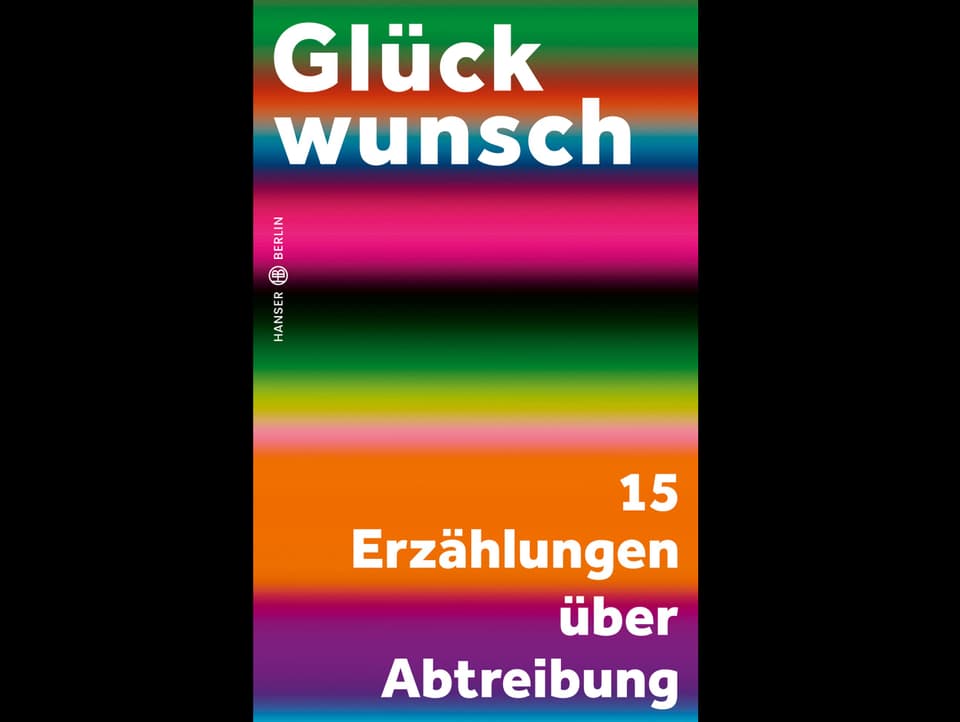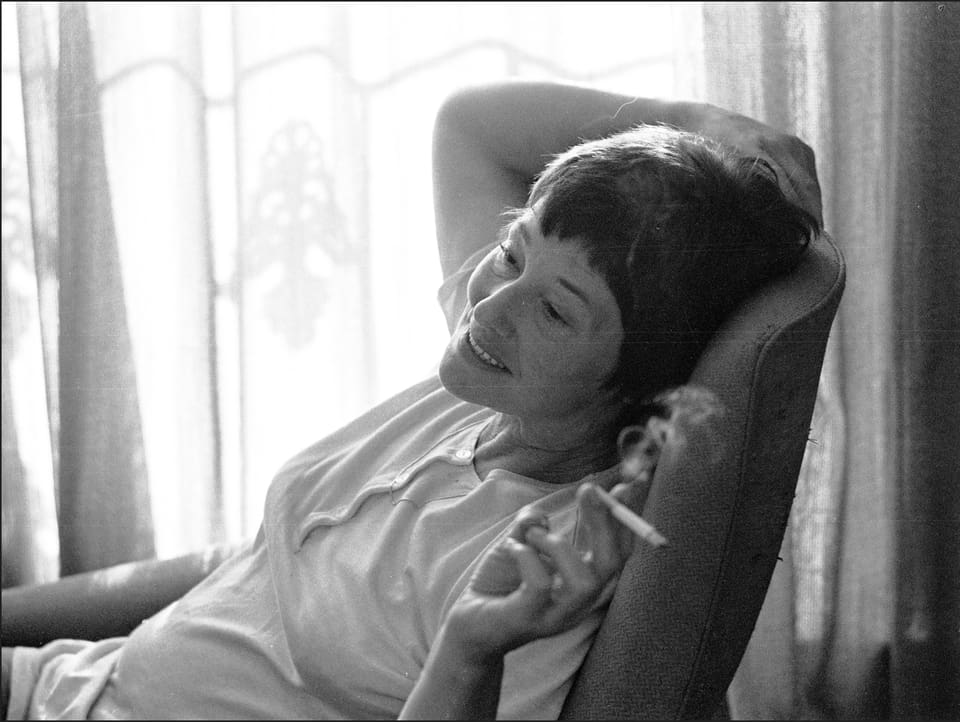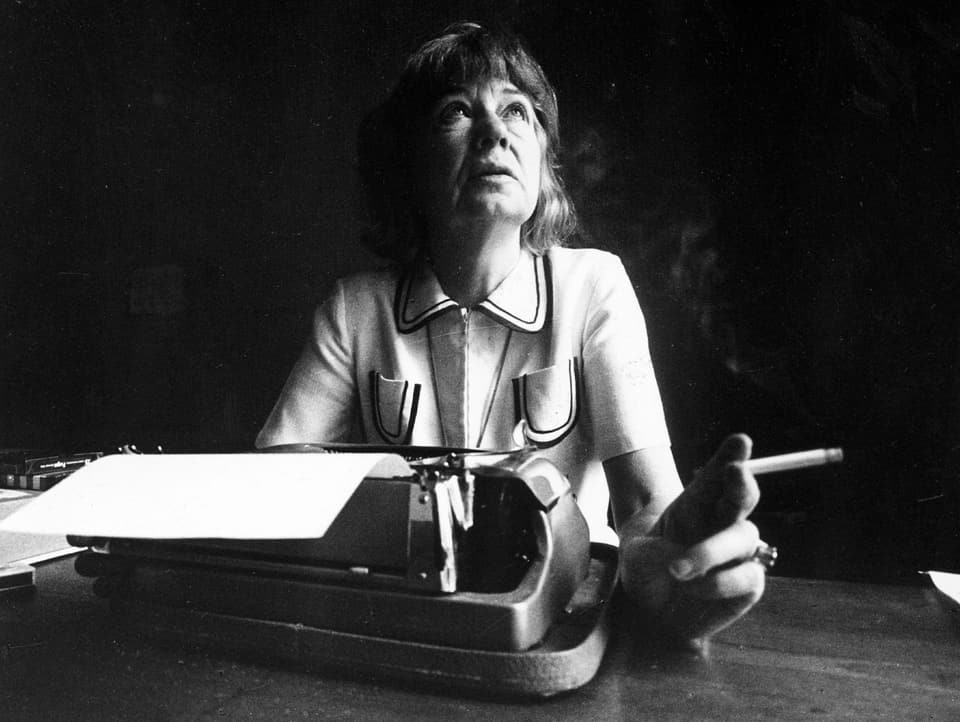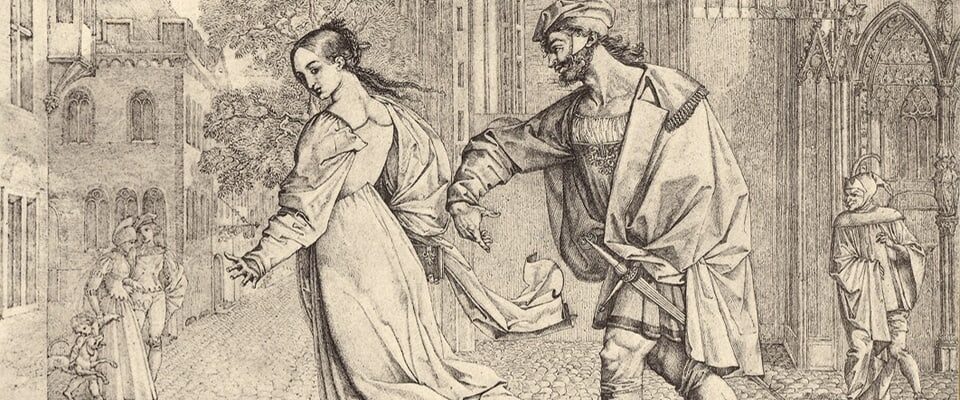Contents
Abortions are still considered taboo. Even in the literature, they have so far hardly been discussed. Gradually that is changing. A selection of books that feature unwanted pregnancies and abortions.
Abortion is still something that is kept secret. Women who have had an abortion rarely talk about it. There are not many examples in the history of literature either.
By the end of the 19th century, most unwanted pregnancies reported in the literature ended in the death of the newborn. The best-known example: Gretchen from Goethe’s Faust, who sees no other solution than to drown her child.
Legend:
Faust pursues Gretchen, driving her into an unwanted pregnancy – and later to killing her child. With the inexperienced child murderer in “Faust”, Goethe created one of the most tragic female characters in German-language literature.
Wikicommos
It was only at the beginning of the 20th century that abortions were occasionally mentioned in stories. However, the needs of women were not the focus at the time. Rather, it was about her alleged moral failings and her “immoral behavior” that would have put her in a position to have an abortion in the first place.
In the meantime, more authors are daring to approach the topic. Moralization is declining, the multifaceted nature of the representations is increasing – and thus also doing justice to the very different experiences of those affected. Last but not least, some rediscoveries that were once buried are currently enriching the market. Here is a selection of books dealing with abortions:
1. Charlotte Gneuss and Laura Weber: «Congratulations. 15 stories about abortion»
A large and stimulating range of abortion texts is brought together in the recently published volume of stories «Glück Wunsch». The brightly colored cover breaks with common expectations, as does the title: “Congratulations”.

Legend:
Irritated by the contrast between the brightly colored cover and the subtitle: the collection of stories about abortions, published in 2023.
Hanser Literature Publishers
Normally one congratulates a woman on her pregnancy. Why not “Congratulations!” say when a woman has made a clear decision for herself – even if it is a decision against having a child?
The 15 texts in «Congratulations» are diverse. The Swiss author Yael Inokai, for example, delivers a utopia about stress-free abortions at home. And Lena Gorelik, born in St. Petersburg in 1981, reflects on the abortion machinery in the Soviet Union; there were four abortions for every birth. What is particularly refreshing about this anthology is that men have also contributed stories.
2. Penelope Mortimer: “Before the Last Train Runs”
A wonderful rediscovery from 1958, which has just been published in German for the first time: The story takes place in Great Britain and is about 37-year-old Ruth Whining, who is terribly bored with her life as a housewife.

Legend:
In “Before the train stops”, the British journalist and writer Penelope Mortimer (1918-1999) disenchants the supposedly happy housewife life of the 1950s.
Getty Images / Michael Ward
When her 18-year-old daughter accidentally becomes pregnant, Ruth remembers that she herself became a mother far too young. Now she is doing everything to enable at least her daughter to make a free decision – and to live a free life.
3. Claudia Piñeiro: «Cathedrals»
Another new release: Claudia Piñeiro, one of the most successful Argentinian authors, places an arch-Catholic family at the center of her exciting novel. Thirty years ago, one of its members died: the then 17-year-old Ana. Her body was dismembered and burned.
You soon find out that Ana died as a result of a secret abortion. And then you read and watch what silence, looking away and religious fanaticism do can.
4. Tove Ditlevsen: “Dependence”
The Danish author Tove Ditlevsen (1917-1976) is one of the most impressive rediscoveries of recent years. Her autobiographical Copenhagen trilogy takes place between the 1920s and 1950s and consists of the novels “Childhood”, “Youth” and “Dependence”. The trilogy was published in German for the first time in 2021.

Legend:
The Copenhagen Trilogy by Danish writer Tove Ditlevsen (1918-1976) was one of the most celebrated literary rediscoveries of recent years.
IMAGO / Skanereportage / IBL Bildbyra / TT
The third part, “Dependency”, shows – similar to Annie Ernaux’s later “The Event” – the dangerous situations women have to put themselves in when abortions are officially banned: A medical student injected Ditlevsen with an opioid painkiller. After the surgery she was dependent.
5. Annie Ernaux: “The Event”
“If I do not relate this experience in detail, I contribute to obscuring the reality of women’s lives and make myself an accomplice to male domination of the world,” writes Nobel Prize winner Annie Ernaux in “The Event”.
The book is about her own experience of wanting to have an abortion in 1960s France. Abortions were illegal at the time. Ernaux almost bled to death after visiting a so-called angel maker. The work, only 100 pages thin, gets under your skin. Published in France in 2000, it was only translated into German more than 20 years later.
6. Lotta Elstad: «So Wednesday»
After a one-night stand, Hedda is unintentionally pregnant. She wants to have an abortion as soon as possible, but the Norwegian health system requires three days to think about it. Business days only apply. And since the day of the first visit to the doctor does not count, the three days to think about it can turn into six. So Hedda has to brood for six days. State-mandated thinking.
The Norwegian Lotta Elstad has written “Wednesday So” an astute and funny novel. A humorous book about abortion – that too is possible.
7. John Irving: “God’s work and the devil’s contribution”
Irving’s book was a bestseller. The American-Canadian writer received an Oscar for the accompanying film, for which he wrote the screenplay himself: With “God’s Work and the Devil’s Contribution”, John Irving wrote a plea for women’s self-determination – from a purely male perspective.
The book is about the orphan boy Homer Wells. He initially rejects abortions, but after some impressive experiences with reality he changes his mind. From then on he used his medical training to help women.
